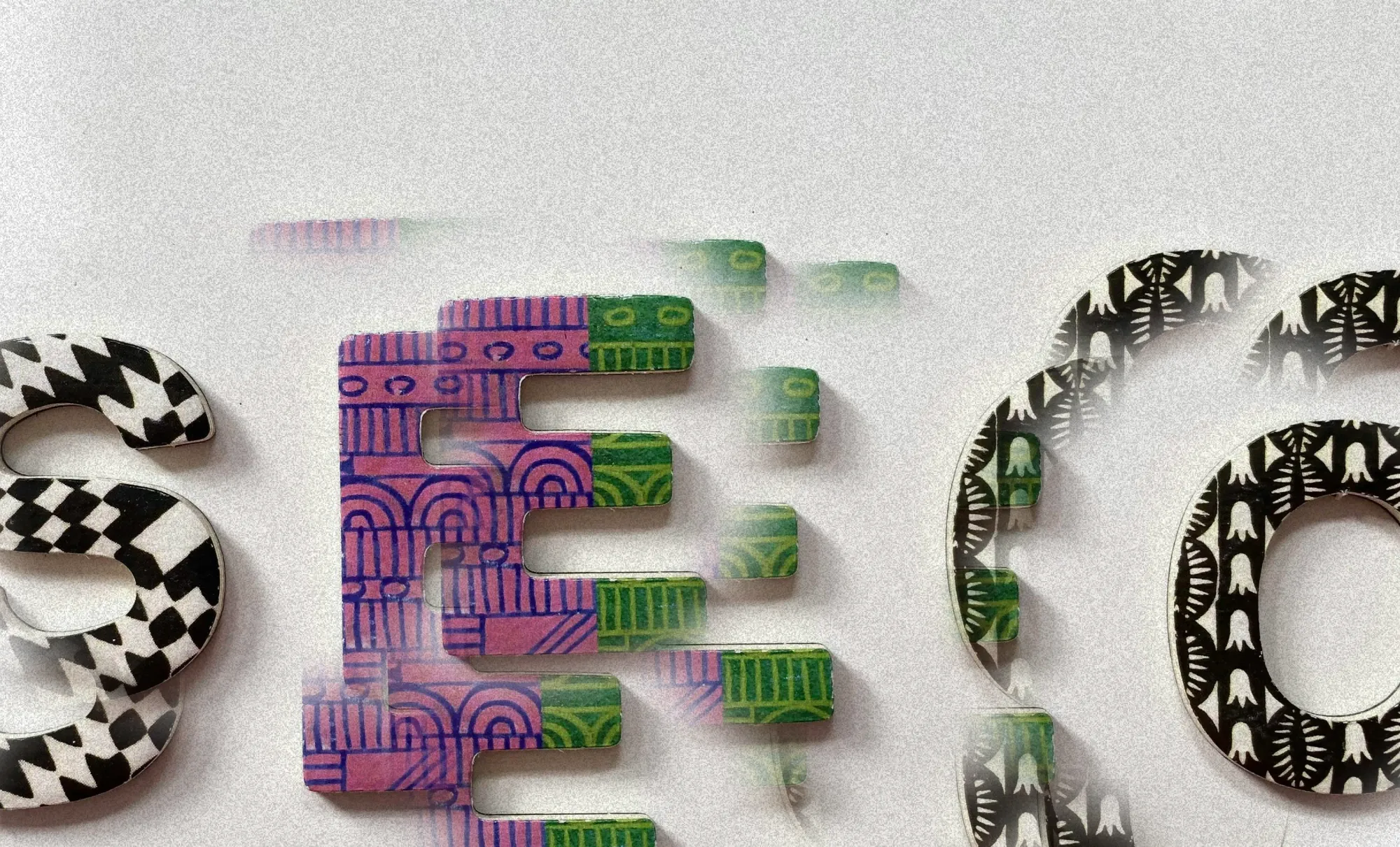SEO ruined the internet – On search, AI, and writing online
How SEO made it a burden to search the internet, why Google is just a mess, and AI trying to solve all of it.

I had this post in my drafts for quite some time. However, as of recently, I experienced that a lot of people went from "Let me google that quickly" to "Let me ask ChatGPT quickly". And to be honest, I do get that, and it was enough reasoning to pull up the draft for this post and finish writing it.
While searching the internet became a burden, maneuvering through absolute garbage, AI manages to deliver clear text. Although, we have to set aside the fact that some information is still tremendously wrong, we are only focusing on the overall experience on getting to that information. ChatGPT, Perplexity, You.com, they all do a good job with that. On the other hand, searching for something on Google became the worst experience you can think of. All the links that pop up are straight garbage, and they landed there because someone used and leveraged all the SEO (search engine optimization) tricks out there. Overall, searching the internet and especially using Google for that, has became bad enough that it is straigh unusable. Anything that Google delivers is nowhere near the best results that a user is hoping for. All it delivers is garbage by the people who invested the most time in playing the SEO game to win themselves the number one spot for specific keywords. Additionally, as Chris Coyier pointed out, we also get presented with a bunch of ads and if there is a clear answer to a search term, Google often plucks the answer off the website to display it directly, which ultimates creates zero value for the website it was plucked from. It seems like the same will happen with generative AI search Perplexity. As Adweek reported in April 2024, the company is going to start selling ads after raising $73.6 million Series B funding. Nevertheless, I still prefer the best results combined with some ads, instead of getting garbage combined with ads as a search result.
SEO is not about providing valuable content. It is all about selling. Although, we are striving to get the best results for our search terms, we get results from people who won the SEO game and present us mediocre content simply to sell something. Most of the blog posts, articles, and sites you get presented with after initiating a search on Google, all do not feel authentic, they do not feel real. The sites and posts which actually feel real and provide the answer someone is looking for get deprioritized by Google because another person plastered their site with keywords matching the search term.
I have the feeling most people hate SEO. The people who love it are the ones heavily involved in exploiting our impulses for traffic and profit. However, besides that there are good things about SEO. Yeah, right, who would have thought? SEO also includes On-Page optimization, which means having meta description tags, alt tags and alt text, page titles, internal links, as well as image optimizations. To be honest, those are simply things everyone who is building websites should focus on. It is a no-brainer to make your website accessible, make sure the performance is good, and once you done that simply start writing and put your stuff out there. That works, is sustainable, and does not turn your writing into unreadable garbage because it got plastered with keywords.
I have been there and got lured into SEO when I started to write on the internet. Once I hit 'publish' on my posts I wanted to be seen, I wanted that people read my posts, I wanted to get traffic from Google. Blech, I know. Therefore, I completely revamped and rewrote my posts, used multiple keywords, and "optimized" it with all the SEO knowledge I could get from those SEO-ExPErTs. For what? For nothing.
As I wrote more and more on the internet, I also started to consume more writing on the internet, to learn and find out what others do better. I realized that the posts I enjoy reading the most are the ones that are truly authentic, personal, opinionated, lovely written. The ones I hated used the same keywords in every paragraph, were written poorly and bland, and overall simply felt off. I felt stupid for trying so hard on all that SEO nonsense just to realize that I was creating exactly what I hated the most about so many blog posts and articles out there. Although, I stopped optimizing my posts on Creativerly, I still get a large chunk of traffic from Google and other search engines, in general I do not care that much about traffic anymore as I used to. I love writing and posting my thoughts, ideas, and notes on the internet. The biggest win for me is not to reach the top spot on Google for specific keywords, it is receiving emails or notifications on social networks saying that they enjoyed reading the post, or receiving traffic from another newsletter creator or personal blog post which mentioned my post. That is what the internet is all about for me. But SEO ruined a bunch of that as so many of that great and lovely writing buried under ads and garbage, thanks to Google which made a business out of that.
SEO-driven tactics have led to a decline in user experience. There are way too many websites prioritizing search engine rankings over user-friendly design and functionality. After clicking on a clickbait headline, you get presented with misleading content that was only created to drive traffic rather than providing genuine value. Additionally, there has been so much manipulation when it to ranking high within search results, that I have a hard time taking anything serious regarding SEO. All that SEO achieved was a loss of authentic voice, genuine storytelling, and providing value. SEO means tailoring content for search algorithms rather than human readers. And I have not even touched on unethical tactics that emerged from SEO, like link farming, keyword stuffing, and cloaking. It all fells just so wrong.
The one sentence that describes the whole field of SEO in the best possible way, comes from a piece by Amanda Chicago Lewis published in The Verge. In that post, Lewis wrote about the interactions with a couple of people who worked in the field of SEO and the fact that they call themselves "SEOs" as like "As the SEO, my job is to get more traffic". Imagine that. There are folks who see themselves as important as the CEO of a company, to use that thirsty title to be taken seriously, for work no one can actually take seriously. It is bonkers.
So, Google is bad. In fact, search engines like Google using the same business model are bad too. Therefore, it is no wonder seeing how many people are turning to AI using things like ChatGPT and Perplexity instead of Google. Since ChatGPT has not been known to provide the most accurate results while using it as a Google alternative,OpenAI recently announced its plan to launch an AI-powered search engine as a direct Google competitor. Will AI save the internet search? I do not know. At the same time, I hope not or at least I hope for something better. I do not like Arc's idea of browsing the web for me, while that is actually what I enjoy to do when searching for something. Additionally, Arc Search screams "Screw all the independent creators out there" as it summarizes the web and bypass the lovely, accessible, and valuable websites creators have worked on and put so much time into. AI exploring the web for me just to use information from publishers without citing sources and providing a way to actually help those publishers monetize their content? No, thank you.
There is indeed an opportunity to solve the current problem of searching the internet as it became one of the most tedious tasks to use Google and blaze a trail through a covert of SEO and ad garbage. I have no idea if AI, algorithms, or Google will solve that problem. What I do know is that I am thankful for very specific internet corners, personal curated, ever growing lists of people I admire, blog posts I want to read, Podcasts I want to listen to, my RSS feeds, and everyone out there who create valuable, thoughtful, and helpful content. Keep at it. While Google and other mainstream search engines are facing criticism for prioritizing SEO-driven tactics over user experience and burrying actual valuable content, the people who want to find your writing will find it. It might not be as easy as plastering a post with countless keywords, but it will be worth it.
Nevertheless, the question how we are going to save the internet search experience still persists and the answer indeed remains uncertain.
Till next time! 👋
Support: Do you have a friend who is looking for inspiration, news about design, and useful tools and apps? Forward this newsletter to a friend or simply share this issue and show some support. You can also show some love by simply clicking the button down below and keep this newsletter a sustainable side-project by buying me a coffee. ☕️ 🥰




Discussion